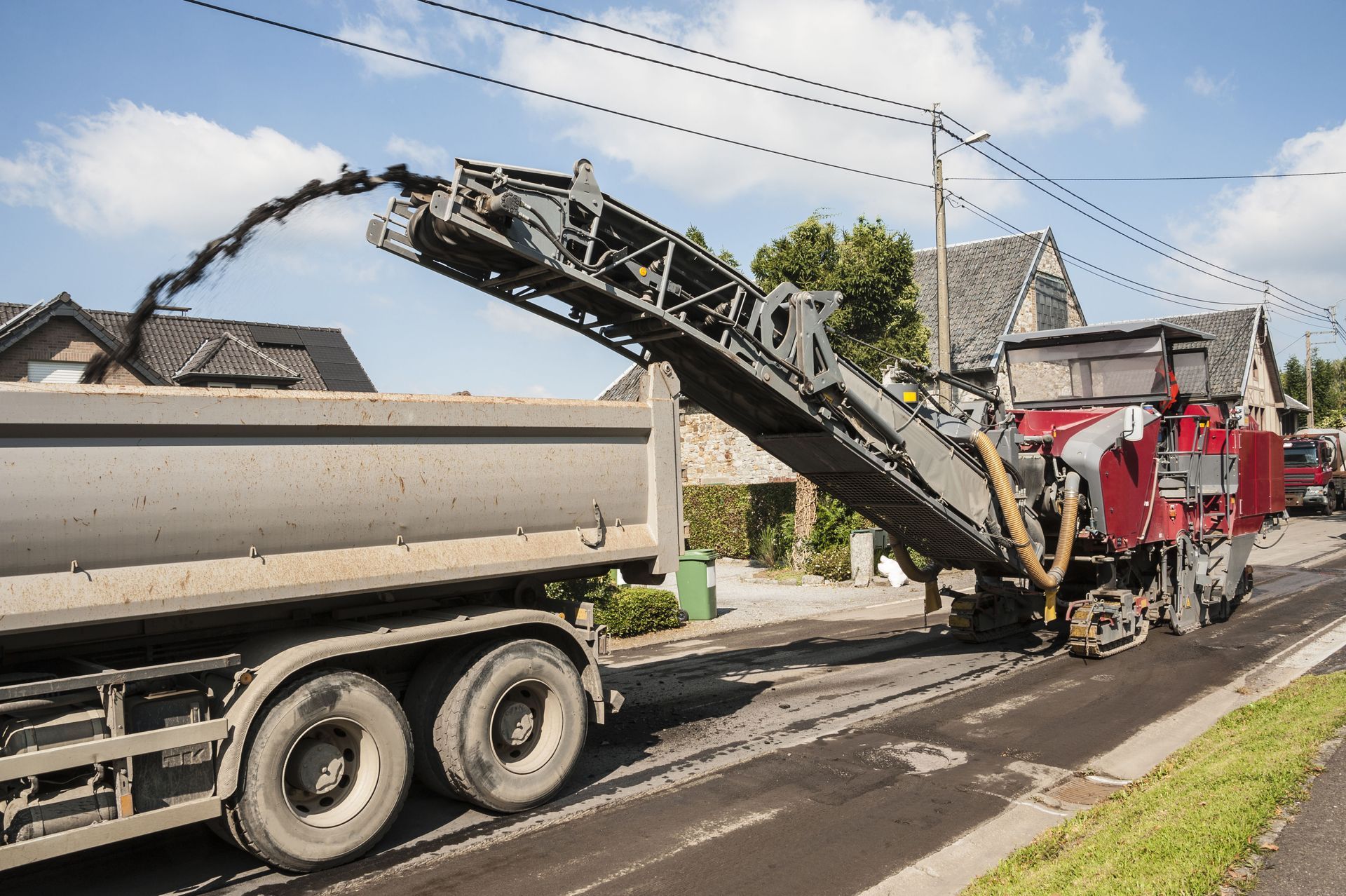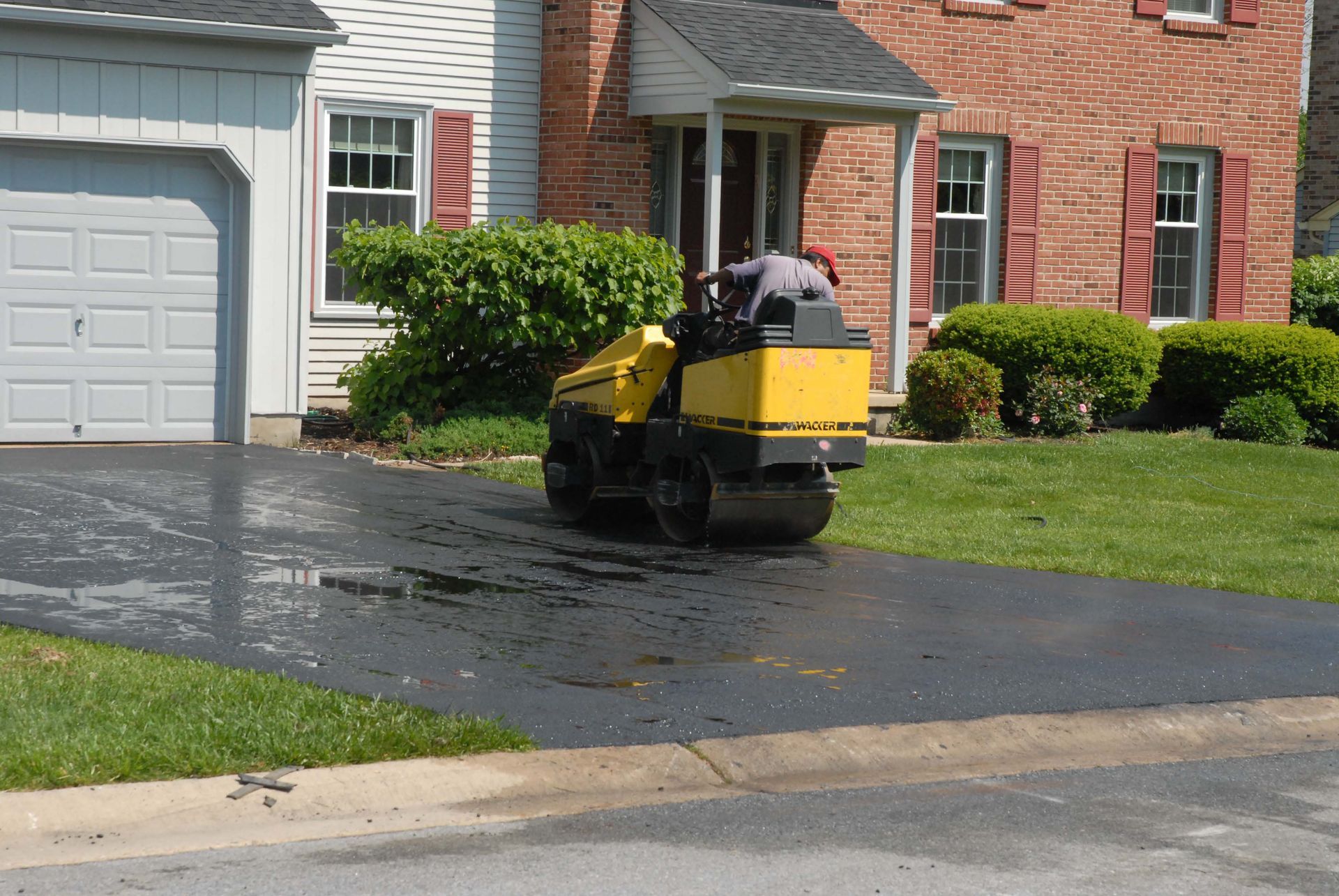Why Proper Asphalt Paving Makes All the Difference for Harsh Climates
The extremities of weather conditions pose significant challenges to infrastructure, making the way we construct and maintain roads and pavements critically important. As regions experience harsh climates, including both severe cold and extreme heat, the role of asphalt paving installed by a quality local paving contractor becomes increasingly vital in ensuring roads remain durable, safe, and cost-effective. Let's take a moment to explore the fundamental importance of proper asphalt paving in areas subject to severe weather, illustrating its role in overcoming environmental stresses and providing sustainable infrastructure solutions.
Temperature Resistance
Temperature resistance is a primary consideration for asphalt used in both cold and hot climates. Specialized asphalt formulations are designed to withstand high heat without softening and to endure bitter cold without becoming brittle. Innovations include the use of polymer-modified asphalts that exhibit increased immunity to extreme temperatures, increasing road durability across differing weather scenarios. Temperature-resistant asphalt ensures stability and safety, minimizing risks such as rutting, cracking, and pothole formation. The adaptive qualities of these materials underscore the critical role of scientific advancement in paving technology.
In regions where temperatures fluctuate dramatically between day and night, expansion and contraction cycles can quickly deteriorate poorly maintained asphalt. A local paving contractor who uses temperature-stable binders and maintains proper sealant schedules can help mitigate this stress. These proactive steps not only protect against heat-induced rutting and cold-weather cracking but also sustain smoother driving conditions and longer pavement life. As climate patterns become more unpredictable, integrating thermal stability with routine upkeep becomes a cornerstone of resilient road design.
Moreover, selecting the correct asphalt grade for the local climate is critical. High-performance mixes are engineered to remain pliable during extreme heat while resisting brittleness in freezing conditions. When combined with regular maintenance practices, such as timely resealing, these materials maintain their structural integrity and surface smoothness over years of fluctuating temperatures, reducing the risk of costly repairs and ensuring safe travel throughout seasonal extremes.
Water and Frost Resistance
In addition to managing temperature challenges, asphalt paving must address the components of moisture and frost. Water infiltration often leads to base softening and failure, while frost-related cycling contributes to surface cracks. Enhancing water drainage through well-designed mixtures can mitigate pooling and decrease exposure to damaging freeze-thaw cycles. Similarly, advanced frost-resistant asphalt preserves structural integrity and performance during colder months. Together, these characteristics enable roads to retain operational status even amidst recurrent environmental trials from water and frost.
In areas prone to heavy rainfall or rapid freeze-thaw cycles, relying on a local paving contractor who can combine high-quality asphalt with proper drainage design is critical. Preventing water from pooling on or beneath the pavement reduces the risk of cracking, potholes, and base erosion. Regular inspections to identify early signs of water damage, paired with timely resealing and surface repairs, help maintain the structural integrity of roads. This approach ensures the asphalt can withstand repeated moisture and frost exposure without compromising safety or longevity.
Adhesion and Flexibility
Adhesion and flexibility are essential attributes of effective asphalt paving, particularly under severe climate conditions. A robust adhesive bond between asphalt layers prevents separation during vehicular load stress and temperature-induced movement. Additionally, flexible materials adeptly absorb mechanical and thermal stress, reducing crack propagation risk. Technological improvements facilitate better adhesion and flexibility through the inclusion of additives like rubber and polymers. Perpetual focus on preserving these qualities helps to maintain pavement integrity across various environmental scenarios.
Maintenance from a local paving contractor will also play a direct role in supporting adhesion and flexibility. According to Fixr, an asphalt driveway should be resealed every five to 10 years to maintain its condition. Resealing reinforces the bond between surface layers, helps preserve elasticity, and prevents minor surface cracks from worsening—ensuring the pavement continues to withstand stress from heavy loads and temperature variations.
When adhesion and flexibility degrade, pavement layers can deteriorate, allowing water and debris to penetrate beneath the surface. This undermines the road base and accelerates wear, often leading to costly reconstruction. Maintaining proper binder content, compaction quality, and consistent seal coating helps prevent these failures. By combining material innovation with scheduled upkeep, infrastructure professionals can sustain a balance between rigidity and resilience—qualities that are crucial for long-term performance in demanding weather conditions.
Reduced Repair Costs
Investing in proper asphalt paving installed by a local paving contractor significantly reduces long-term repair costs, creating constructive financial outcomes for communities. By upfront spending on high-quality materials and technology, repeated repair needs are minimized, lessening associated labor and material expenses. The cost savings from reduced maintenance opens opportunities to finance alternative development initiatives. Detailed assessments and resilience improvements place communities in stronger economic positions, with infrastructure longevity acting as a primary contributor. Ultimately, prioritizing proper paving eliminates the need for unnecessary repairs, establishing a foundation of cost efficiency and durability.
Preventive maintenance not only reduces repair frequency but also helps identify minor issues before they become major problems. Cracks, edge wear, and small potholes can be addressed early through timely inspections and resealing. By addressing these vulnerabilities promptly, property owners avoid extensive repairs that disrupt traffic and increase overall costs. In the long run, consistent attention to maintenance transforms asphalt paving into a cost-effective investment rather than a recurring expense.
A Greater Lifespan
Scientifically engineered asphalt solutions substantially prolong infrastructure longevity, delivering essential value to stakeholders. Quality paving techniques forge robust, enduring surfaces that resist premature wear, extending their operational lifecycle. With enhanced durability, roadways experience fewer interruptions, steadily serving a thriving economy and population. The improved lifespan reaps additional dividends environmentally, as fewer materials are consumed and carbon footprints are reduced. Enhanced longevity exemplifies responsible stewardship and foresight in infrastructure design and planning across harsh climates.
In addition to routine resealing, addressing minor surface imperfections early with the help of a local paving contractor further extends pavement life. Small cracks, raveling, or edge deterioration can be repaired before they compromise the substructure, preventing costly and disruptive reconstruction. By combining high-quality materials with proactive maintenance, asphalt surfaces achieve a longer, more reliable lifespan, supporting sustainable infrastructure that withstands both environmental stress and heavy traffic over time.
Enhancing Traffic Flow and Safety
Properly paved roads markedly improve traffic flow and safety, illustrating a core benefit for progressive infrastructure development. Smooth, resilient surfaces reduce vehicle damage risk while promoting seamless, efficient travel. Safety is compounded by minimizing necessary interventions for repairs, preventing accidents, and disruptions due to compromised surfaces. The reliable infrastructure enhances the driving experience, supporting economic growth and ensuring essential services are accessible. Prioritizing paving improvements consistently uplifts urban and rural connectivity, offering lasting societal benefits.
Furthermore, timely inspections and preventive repairs from a local paving contractor help sustain consistent lane widths, smooth transitions, and proper traction, which are critical for reducing accidents in high-traffic areas. Roads that remain well-maintained facilitate steady vehicle flow, reduce sudden braking, and minimize congestion-related hazards. By combining durable paving materials with ongoing upkeep, communities can ensure both safety and efficiency, allowing infrastructure to support increasing transportation demands without compromising driver or pedestrian welfare.
Proper asphalt paving is instrumental in mitigating the severe impacts of harsh climates on infrastructure, as this material provides durable infrastructure that can gracefully withstand extreme weather events. To take advantage of all that asphalt has to offer, reach out to a local paving contractor at Driveways Express. We can get you started today with a free estimate!





Share On: